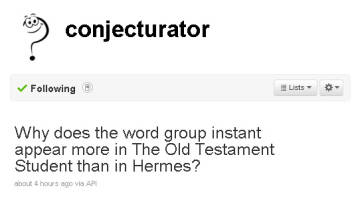I have just finished participating in and writing up a conference report on the Digital Infrastructure Summit 2014 in Ottawa. This summit brought some 140 people together from across Canada and across the stakeholders to discuss how to develop leading digital infrastructure in Canada. This was organized by the Digital Infrastructure Leadership Council. For this Summit the Council (working with Janet Halliwell and colleagues) developed a fabulous set of reference materials that paint a picture of the state of digital infrastructure in Canada.
You can see my longer conference report for details, but here are some of the highlights:
- Infrastructure has been redefined, largely because of SSRHC’s leadership, as big and long data. This redefinition from infrastructure as tubes to focus on research data for new knowledge has all sorts of interesting effects. In brings libraries in, among other things.
- Chad Gaffield (President of SSRHC) made the point that there is a paradigm shift taking place across many disciplines as we deal with the digital in research. As we create more and more research evidence in digital form it is vital that we build the infrastructure that can preserve and make useful this evidence over the long term.
- We have a peculiarly Canadian problem that most of the stakeholders are more than willing to contribute to any coalition, but no one is jumping in to lead. Everyone is too polite. No one wants a new body, but no existing body seems to want to take the lead.
- There is a lot of infrastructure already in place, but they are often not bundled as services that researchers understand. Much could be made of the infrastructure in place if there were a training layer and “concierge” layer that connects to researchers.
